What are split ends? Split ends refers to the splitting or fraying of the hair shaft. This happens when damage to the cuticle, the hair shaft’s outermost layer, exposes the hair cortex. This type of damage, which primarily affects long hair, can then result in split ends, dryness, dullness and breakage. Although most people think of split ends only affecting the ends of their hair, split ends can occur anywhere along the hair shaft. When this happens, you will notice rough, coarse, dry, lifeless hair that is difficult to manage or style.
So, what can you do about split ends? Unfortunately, they can’t be cured or reversed, which is why the best way to treat them is through prevention. Let’s delve into this a bit deeper and put a stop to split ends once and for all!
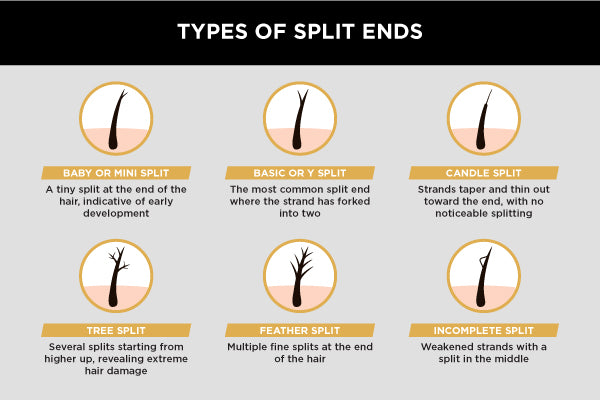
What Causes Split Ends in Hair
Split ends are a tell-tale sign of damaged or overtreated hair. They usually occur with other signs of damaged hair and directly cause some of them — tangling, dryness, brittleness, roughness, and a lack of manageability and shine.
Improper manipulation is a major cause of split ends and physical damage to hair. Overwashing or using harsh hair products, tying hair up too tightly, aggressive or overbrushing, inappropriate drying practices or just rough handling of hair in general can all contribute to split ends.
Heat damage caused by excessive heat styling, such as using flat irons, curling wands or blow dryers at high temperatures without a heat protectant, might lead to split ends and weaken the hair shaft.
Another common cause is chemical damage. Colour treatments, perming, relaxing and other treatments that use various harsh chemicals deplete the hair’s natural oils, weaken the cuticles and cause damage, including hair split ends.
Finally, environmental conditions, such as exposure to UV light, pollution and humidity, also impact the hair, while poor nutrition and hydration play a significant role in the cause of hair split ends.
To combat split ends, it's crucial to take proactive measures to repair your hair and protect it from further damage. By adopting healthier hair care practices and using targeted treatments, you can prevent split ends and promote overall hair health.
Split End Treatment
You can keep your hair healthy and avoid split ends by including a few easy techniques in your hair care regimen.
First and foremost, if your hair is excessively damaged and has many split ends, it’s important to get a trim. By getting rid of the damaged ends, you can prevent further splitting and breakage. To maintain healthy hair, it’s recommended that you visit your hairdresser every 6-8 weeks for a trim.
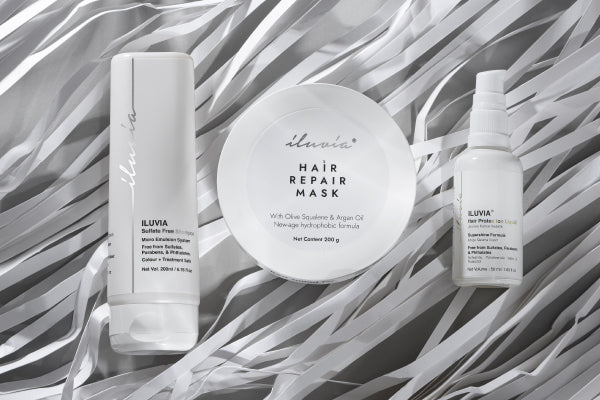
Next, it’s time to swap any harsh hair care products you use with iluvia’s Pro Maintenance System. The Sulfate-Free Shampoo has a pH-balanced micro-emulsion formula that efficiently cleans porous and damaged hair, bringing back its natural lustre. By preserving the ideal oil balance and safeguarding the natural lipid barrier, it reduces dryness, frizz and damage, leaving the hair feeling silky and smooth. It works best when paired with the Hair Repair Mask, whose hydrophobic nature wards off moisture and replenishes the hair’s lipid barrier. In addition, it keeps split ends, frizz and breakage at bay, giving the hair long-lasting suppleness, taming unruly hair and preventing tangles. Following your hair wash, we recommend using the Hair Protection Serum. It shields the hair from environmental damage caused by dust, pollution, moisture and UV radiation and also acts as a heat protectant against styling tools.
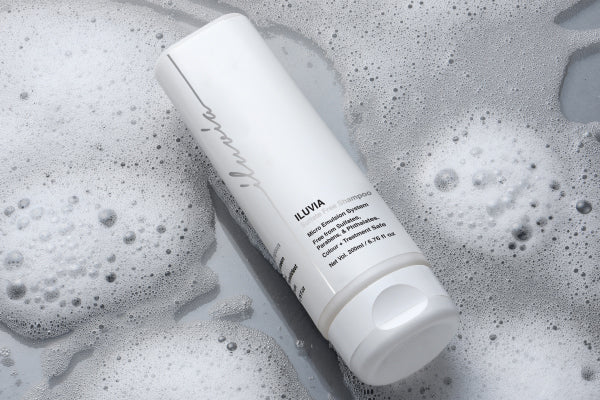
You can also prevent hair split ends by ensuring you use a wide-tooth comb or a brush specifically designed for detangling to minimise damage when styling your hair. Avoid excessive heat styling and use the heat protectant serum when you do and try to let your hair air dry whenever possible to reduce the risk of breakage. Additionally, be mindful of how often you wash your hair, as over-shampooing can deplete your hair's natural oils, causing breakage and dryness.
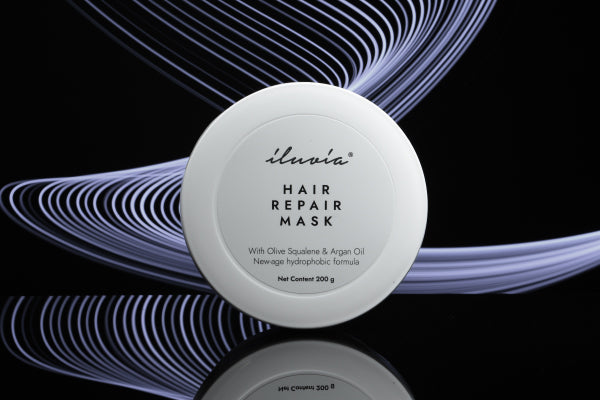
Another crucial preventive step is protecting your hair from elements that can harm it, such as UV rays and inclement weather. Wearing a hat or other headgear and using a serum with UV protection can help shield your hair from these damaging effects when exposed to the sun or wind.
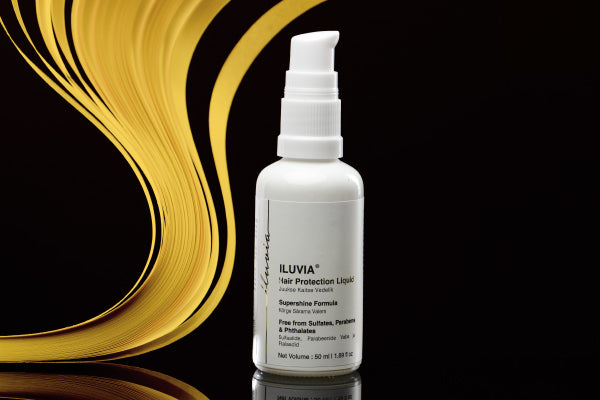
Maintaining a balanced diet full of vitamins and minerals is also essential to strengthening and promoting hair growth. Foods high in omega-3 fatty acids, biotin and vitamin E can contribute to healthier hair overall.
By adding these preventative measures to your hair care routine, you can help minimise the risk of split ends and keep your hair looking its best. Regular hair care will enhance the appearance of your hair and add to its general health and vibrancy.
Take charge of your hair's health and say goodbye to split ends for good. Head to iluviapro.com to get your split-end treatment products.
